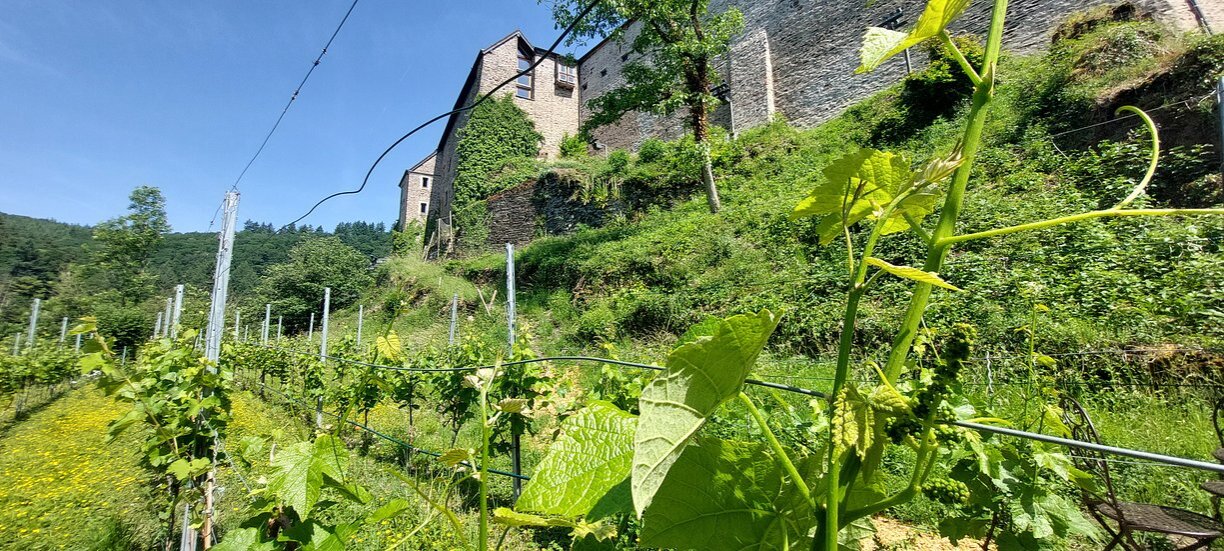
Wine lovers might associate Luxembourg’s viticulture almost exclusively with the Moselle, but far from these famous slopes, two winemakers are quietly bringing new life to the country’s north. In Tandel and Vianden, Marc Roeder and Nico Walisch are proving that the Éislek has its own terroir worth celebrating.
In Tandel, Marc Roeder tends his vineyard just next to his farmhouse. Having planted his first vines in 2019, Roeder chose Solaris, an early-ripening, fungus-resistant variety that requires minimal spraying – ideal for the cooler climate and conditions in the north.
“The land shapes the flavour”, Roeder explains, pointing to the slate soils that distinguish his site and evoke comparisons with Germany’s Saar region, famed for its mineral-driven Rieslings.
“There’s no slate on the Moselle, but up here we can truly shine with it. Slate gives the wine an exceptional aroma, and that’s exactly what we’re trying to capture in the bottle.”
While his production remains small, Roeder is optimistic: “We are expanding slowly. If the weather holds, we hope to bottle six to seven hundred bottles this year.” Roeder is also exploring future partnerships with established Moselle winegrowers to help process his growing harvest.
In Vianden, Nico Walisch’s vineyard sits discreetly at the foot of the castle, a project initially driven by local efforts to revitalise the historic site. Walisch, who planted his vines as early as 2013, calls himself the first winemaker in the north in decades – the last wine from Vianden was reportedly delivered in the 1930s.
His plots include Floreal and Cabernet Blanc, chosen for their resistance and quality, with the latter already yielding a crisp Crémant.
Yet Walisch’s wines are not for sale. “You can only trade for a bottle”, he says with a smile, noting the curiosity his labels spark. One such label, hand-painted by his brother, cheekily reads Vins en face – a playful twist, not Vins d’Alsace, but Vins en face, referencing the view across to the vineyards.
Unlike the well-known Moselle wines, Roeder and Walisch’s small-scale operations highlight a new frontier for Luxembourgish viticulture. The slate soils, cooler climate, and pioneering spirit combine to create wines with distinct character – a quiet but determined revival of an almost forgotten tradition in Luxembourg’s north.